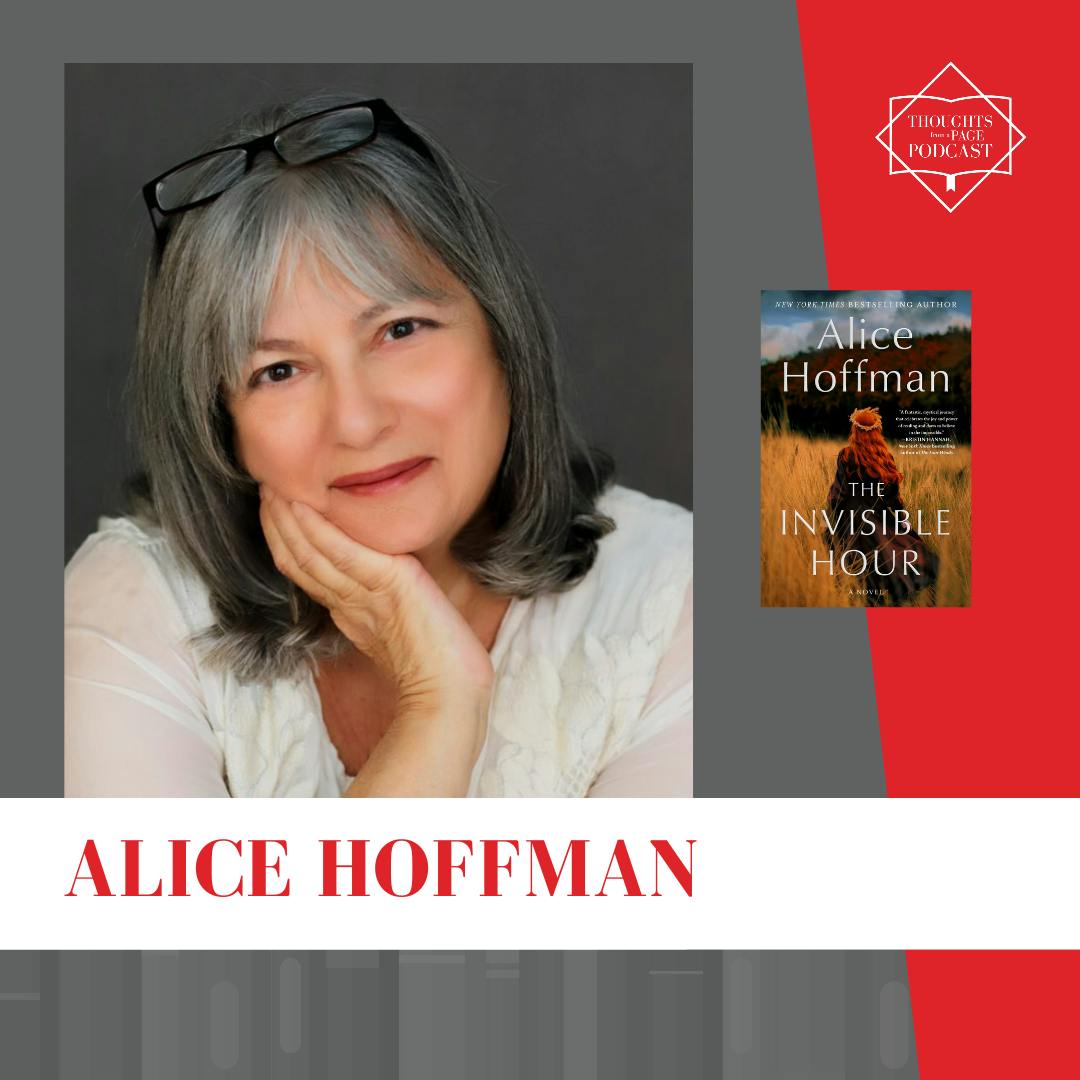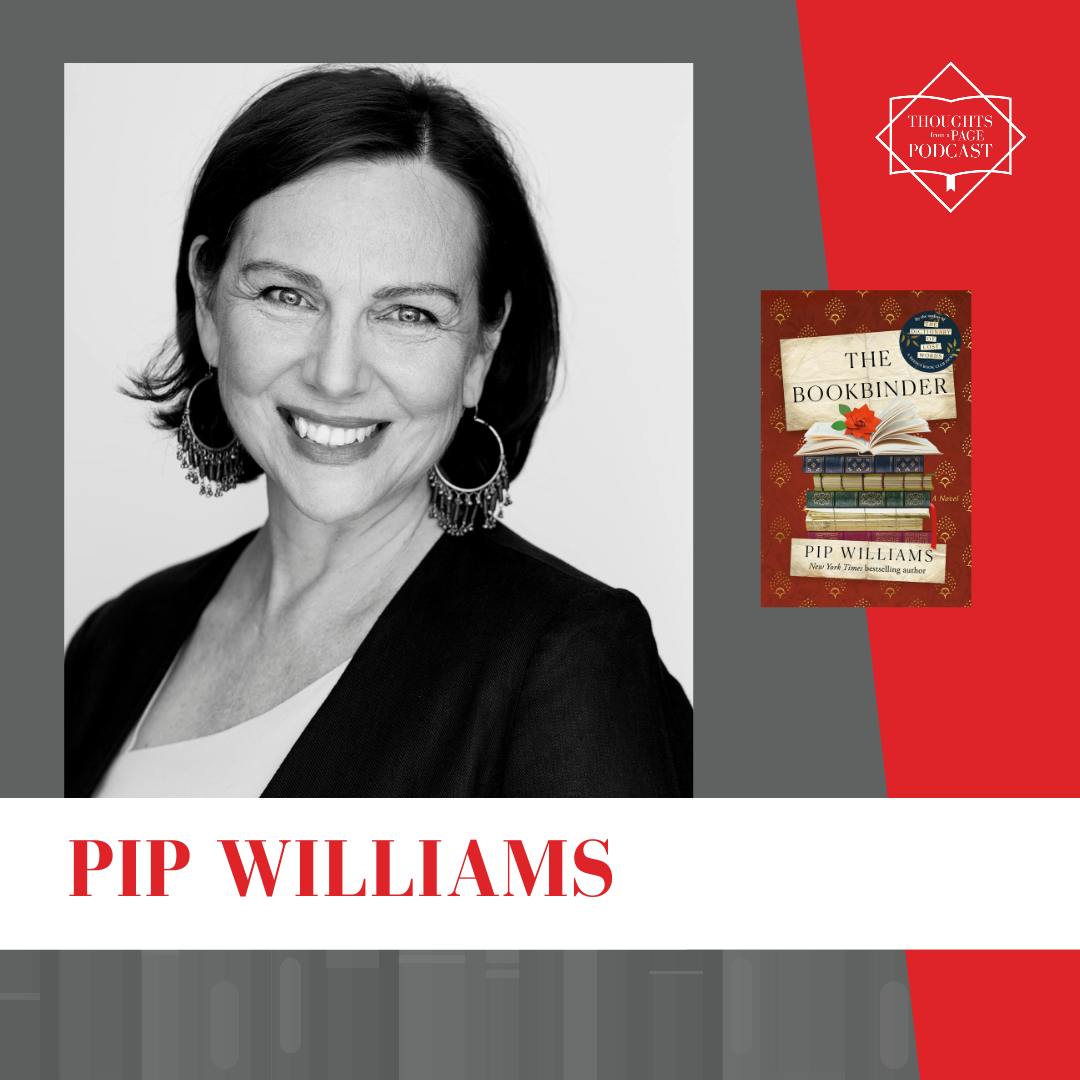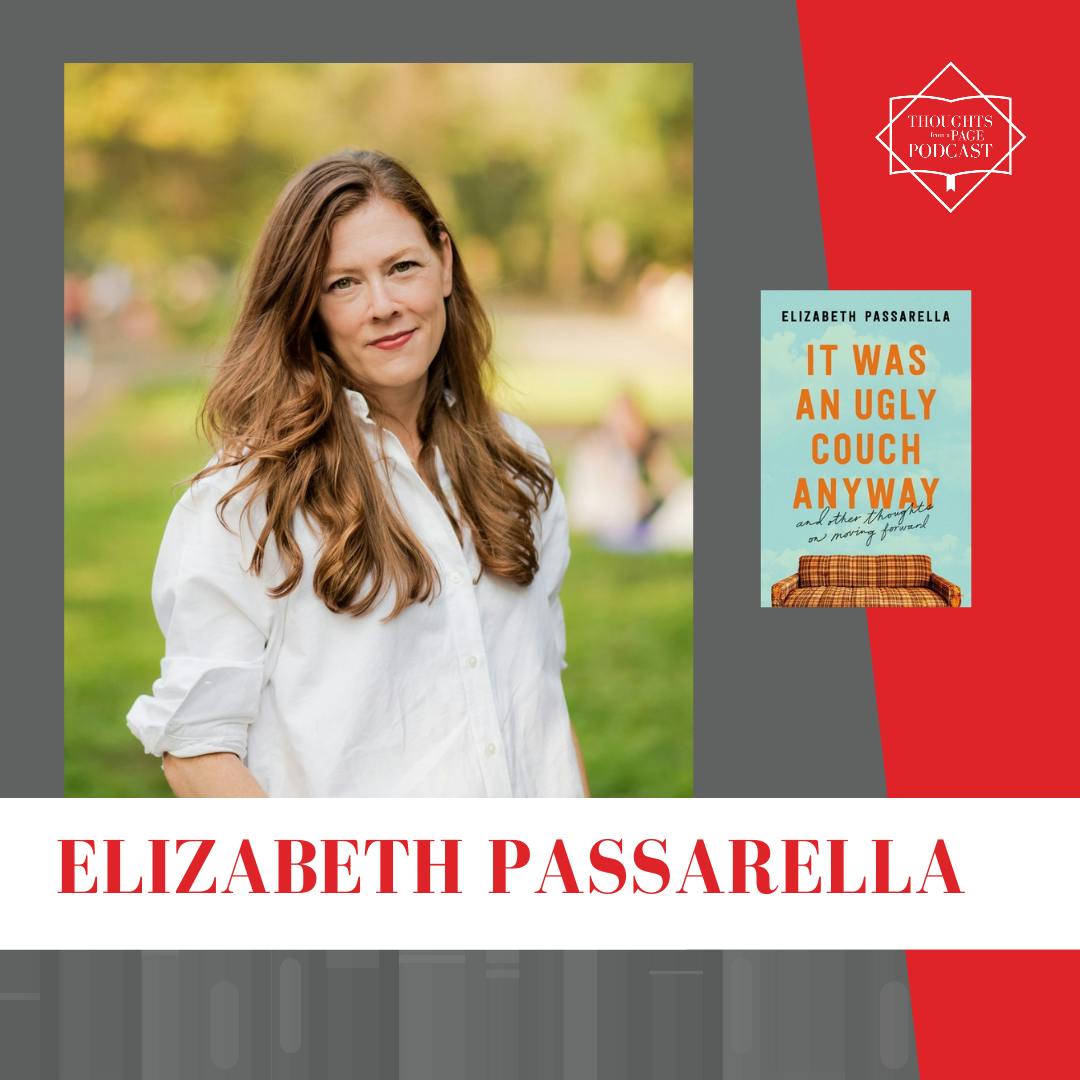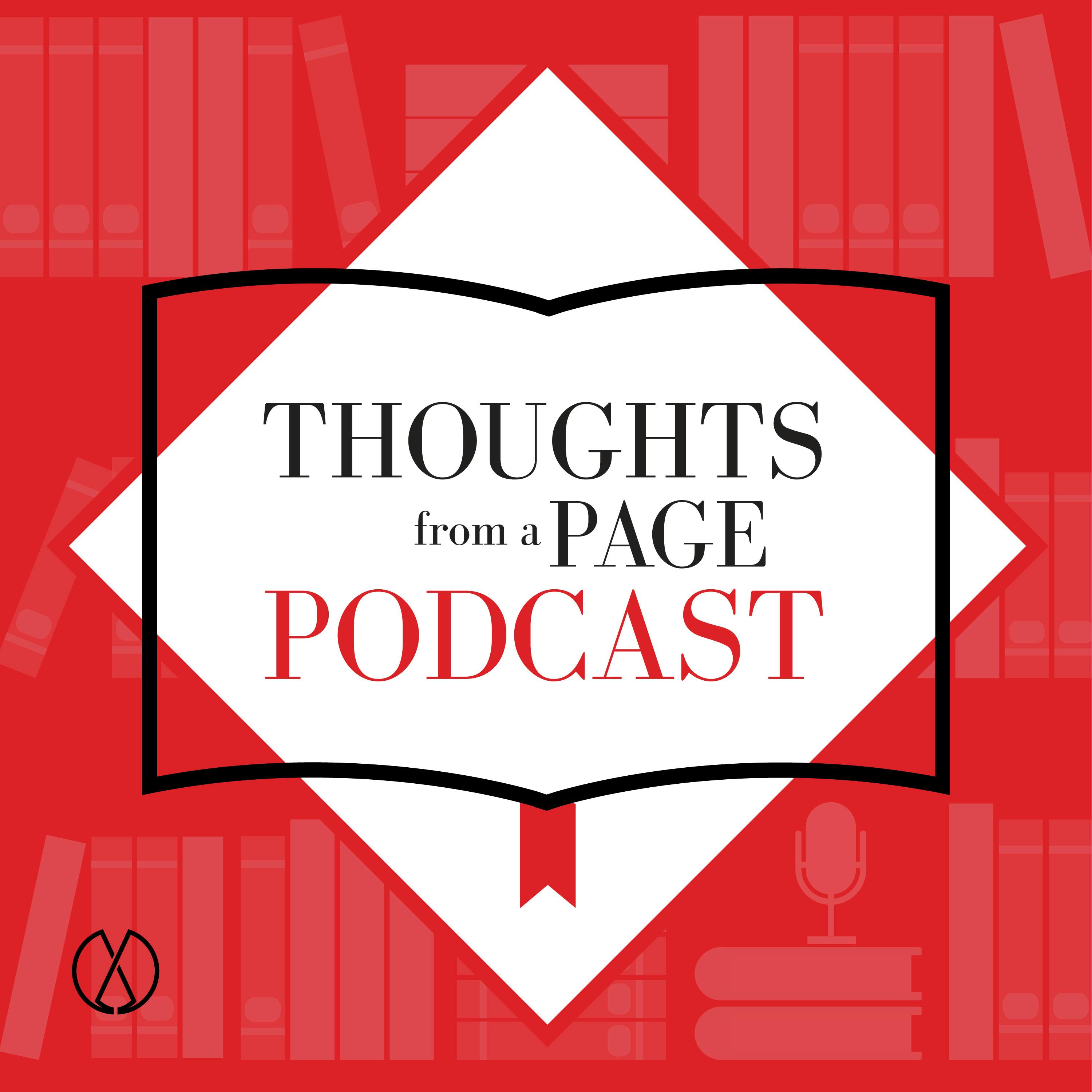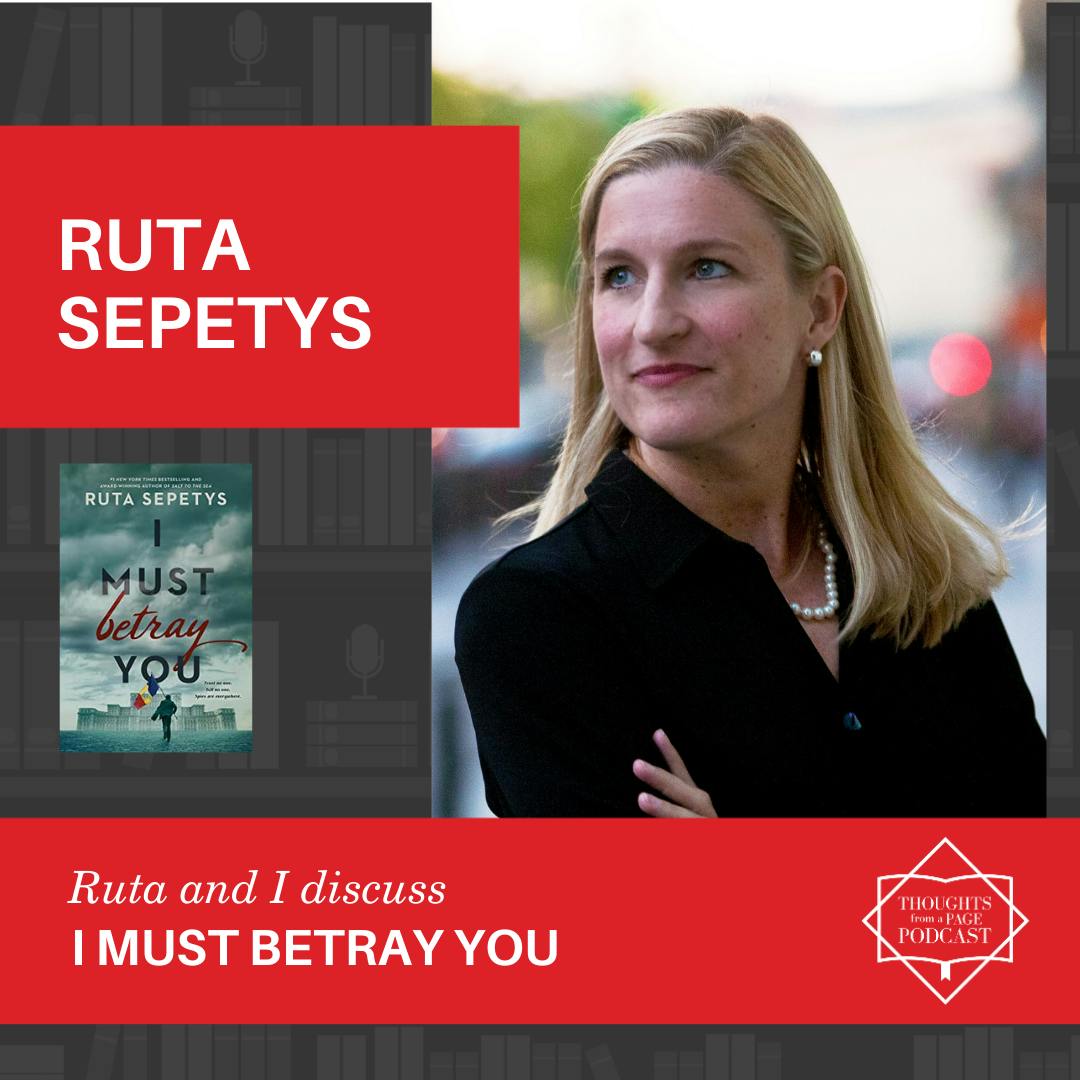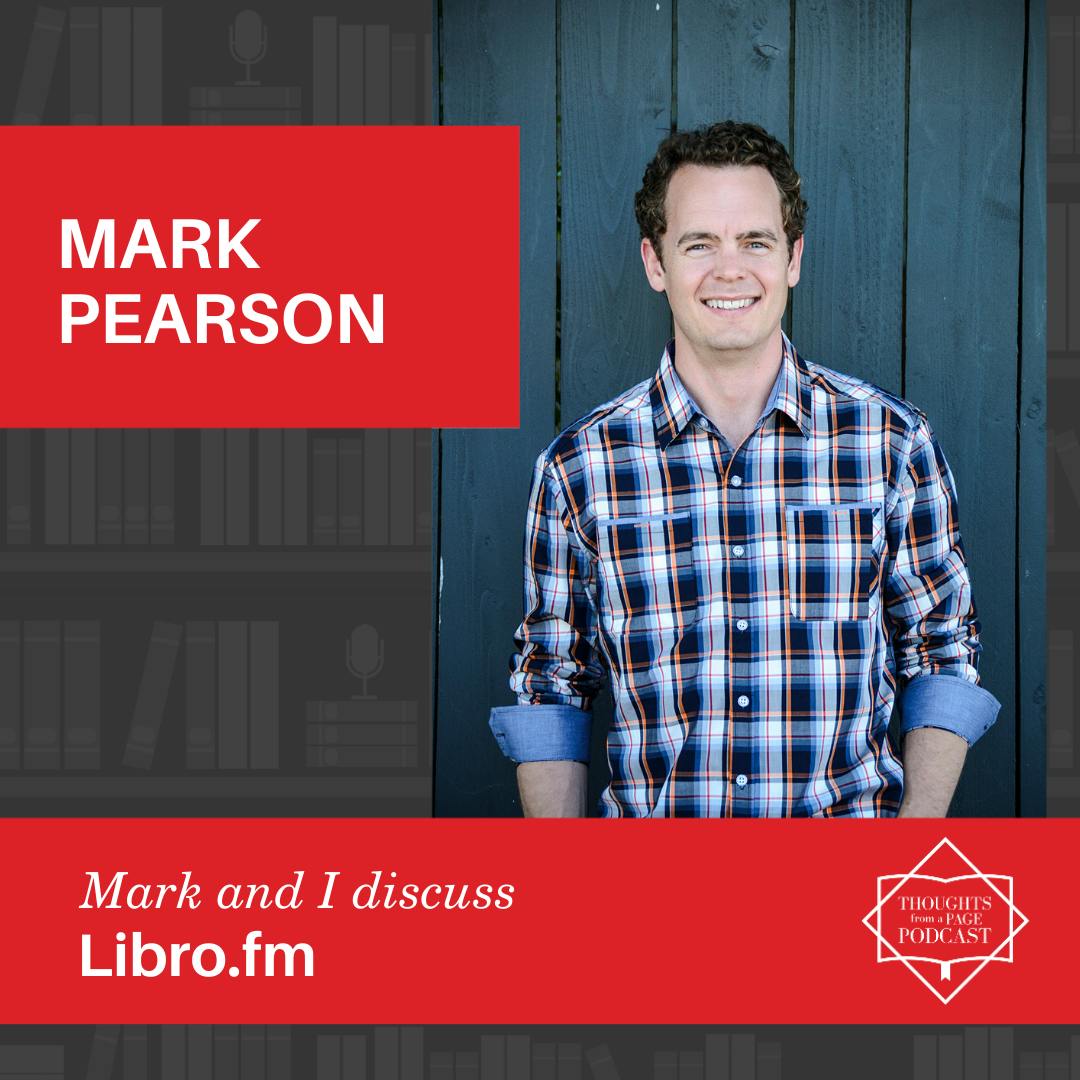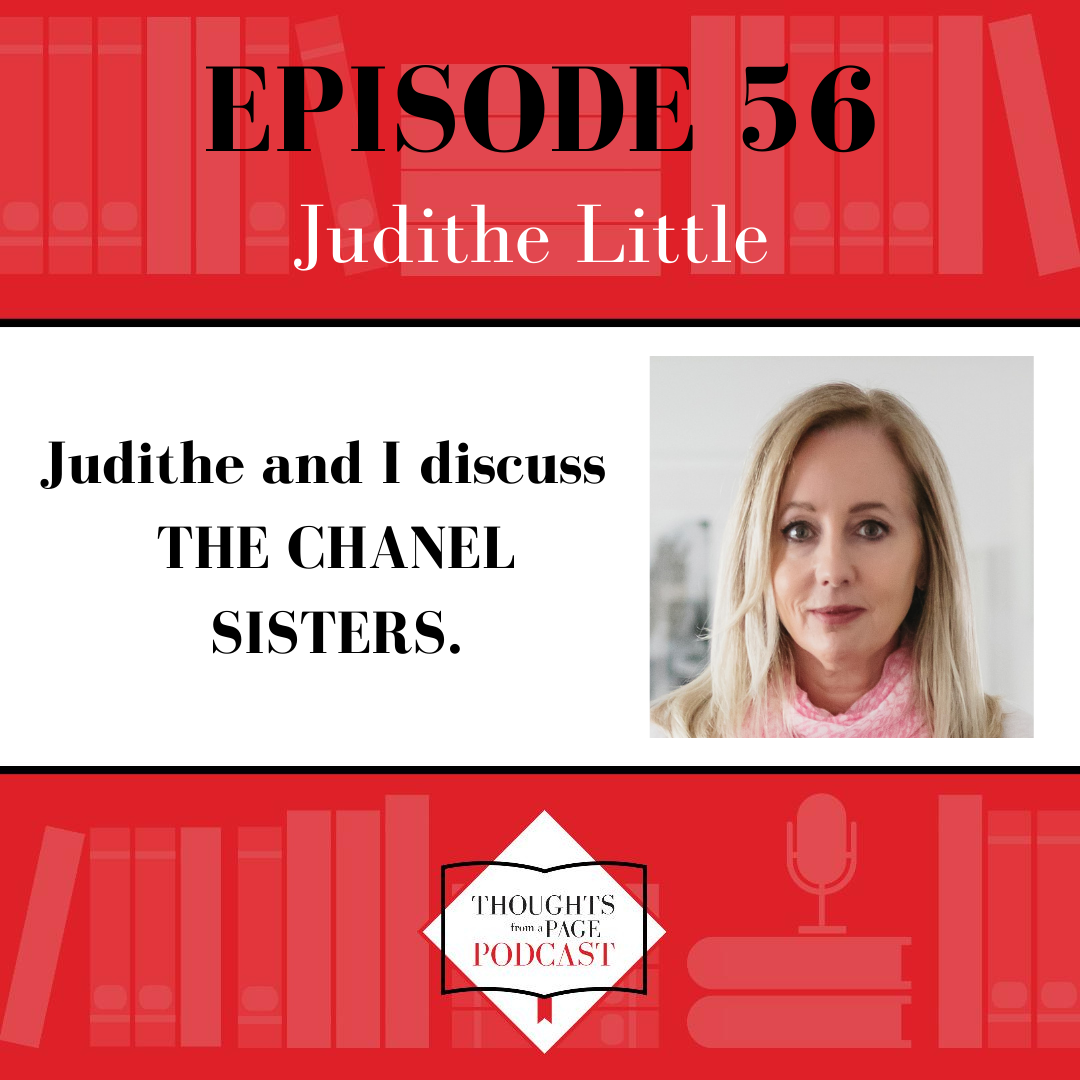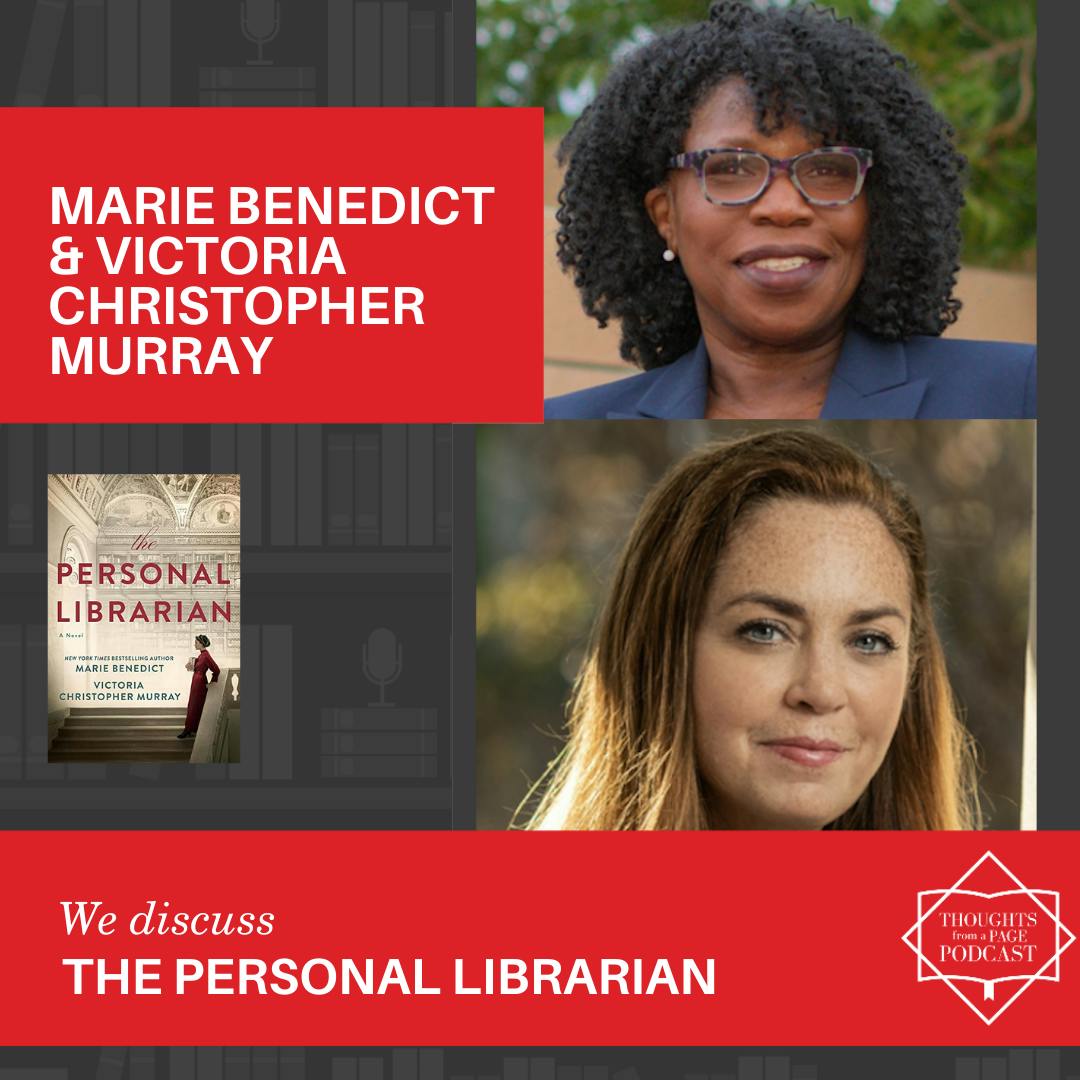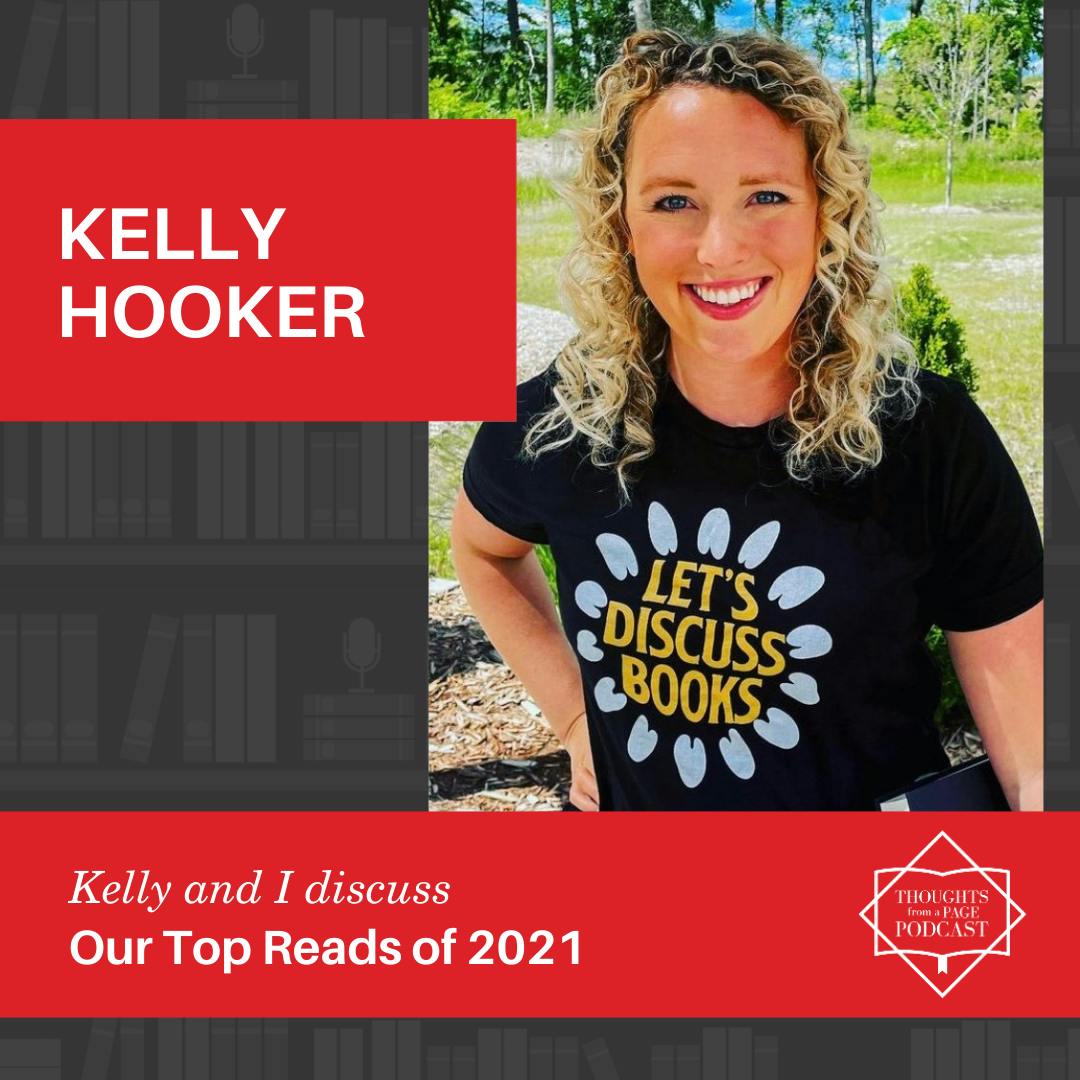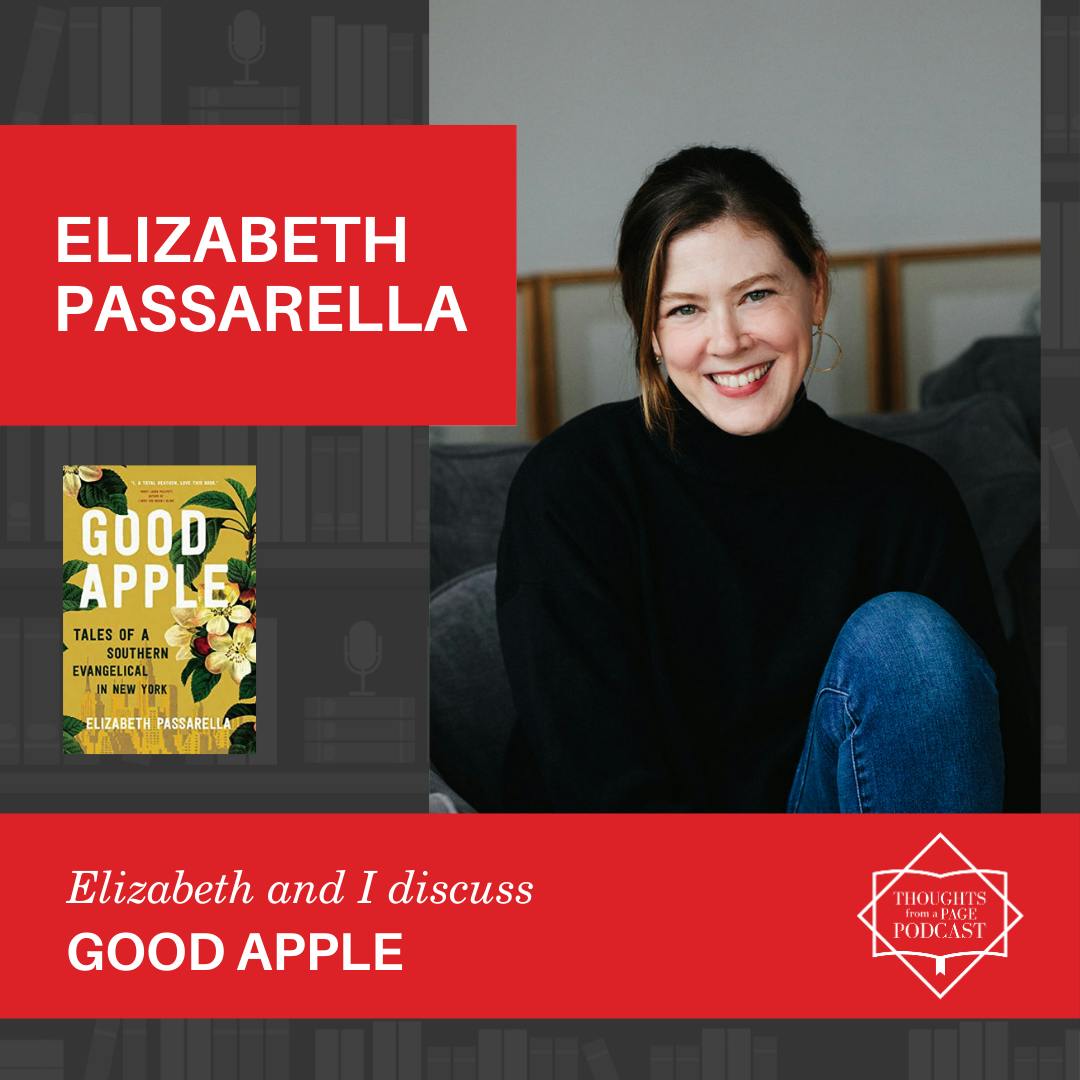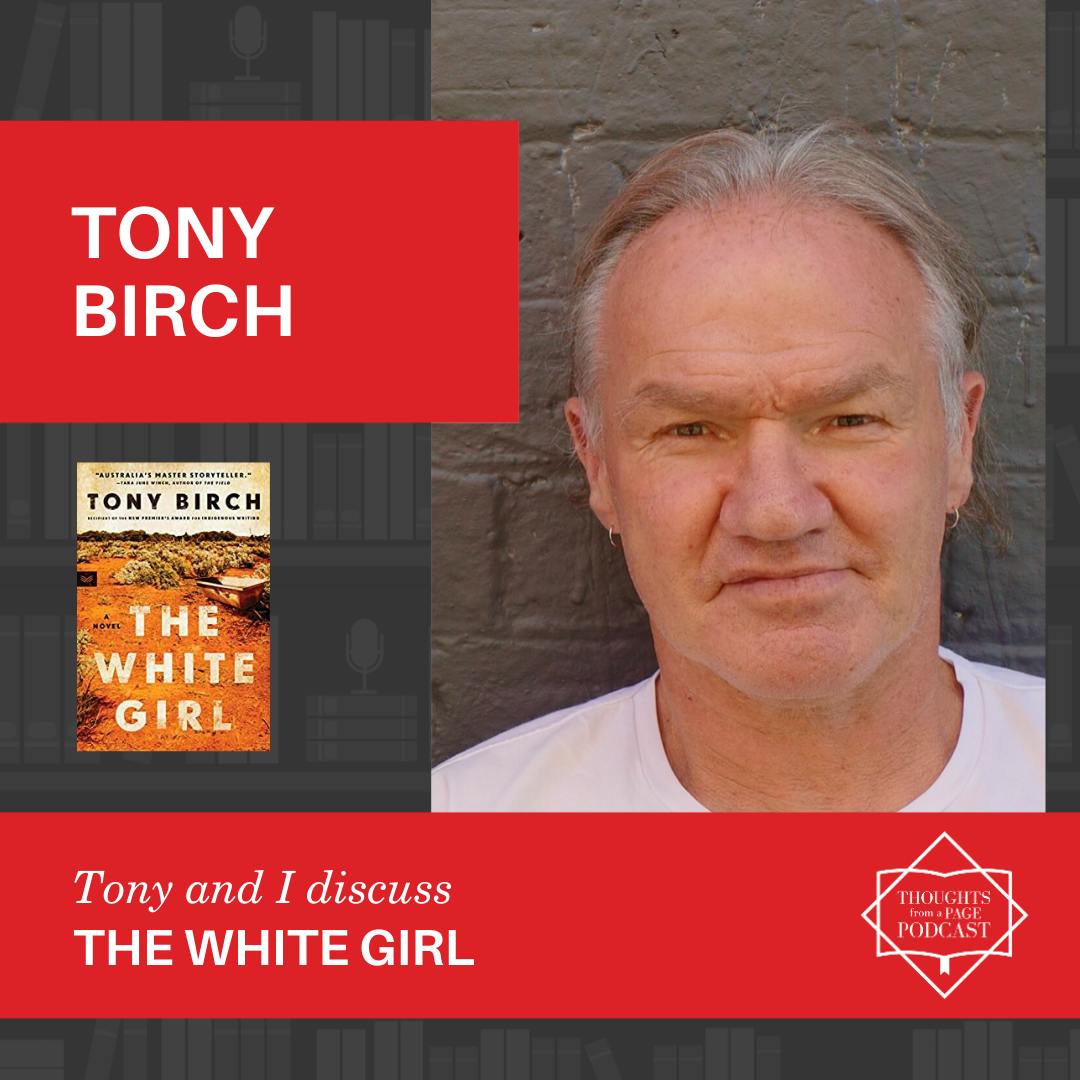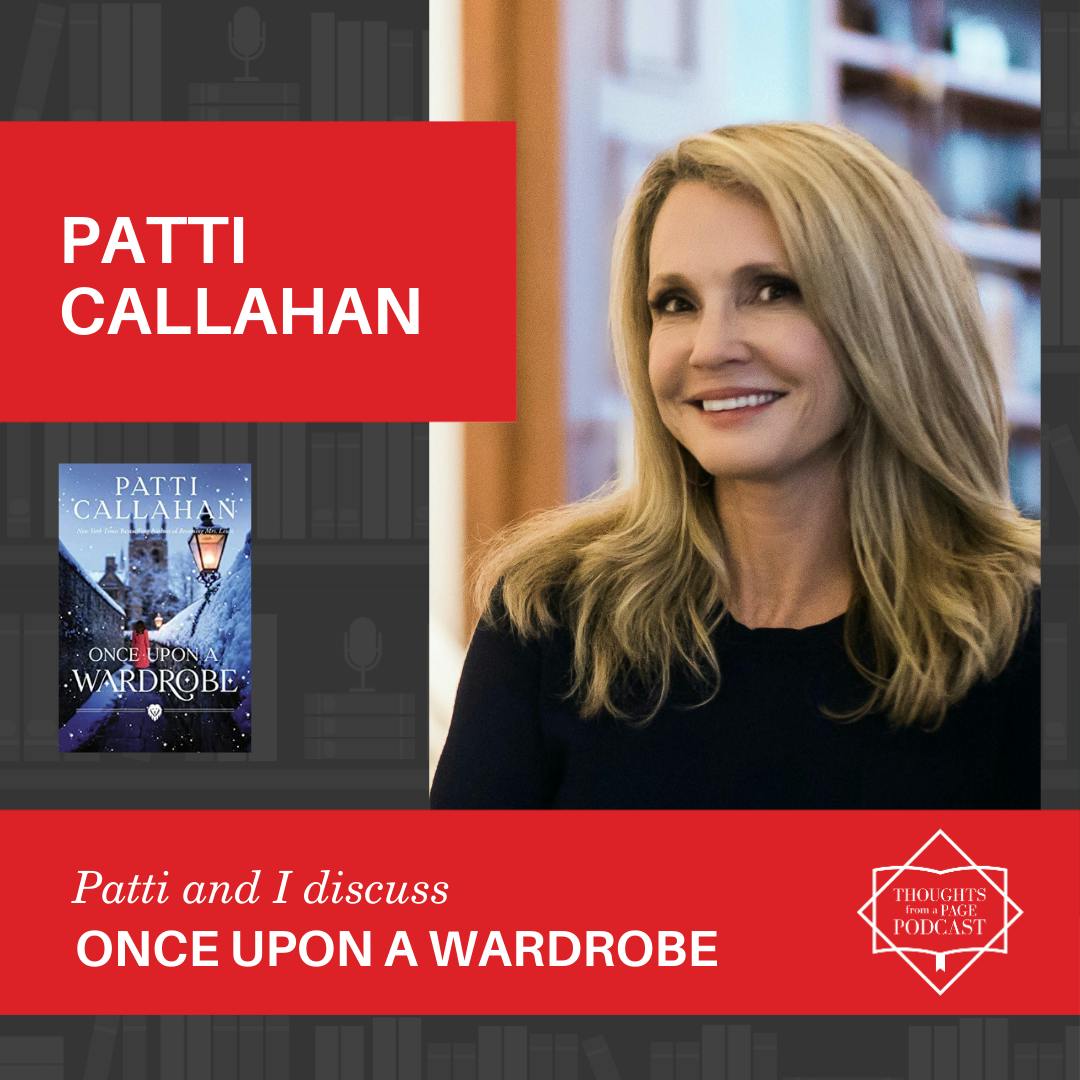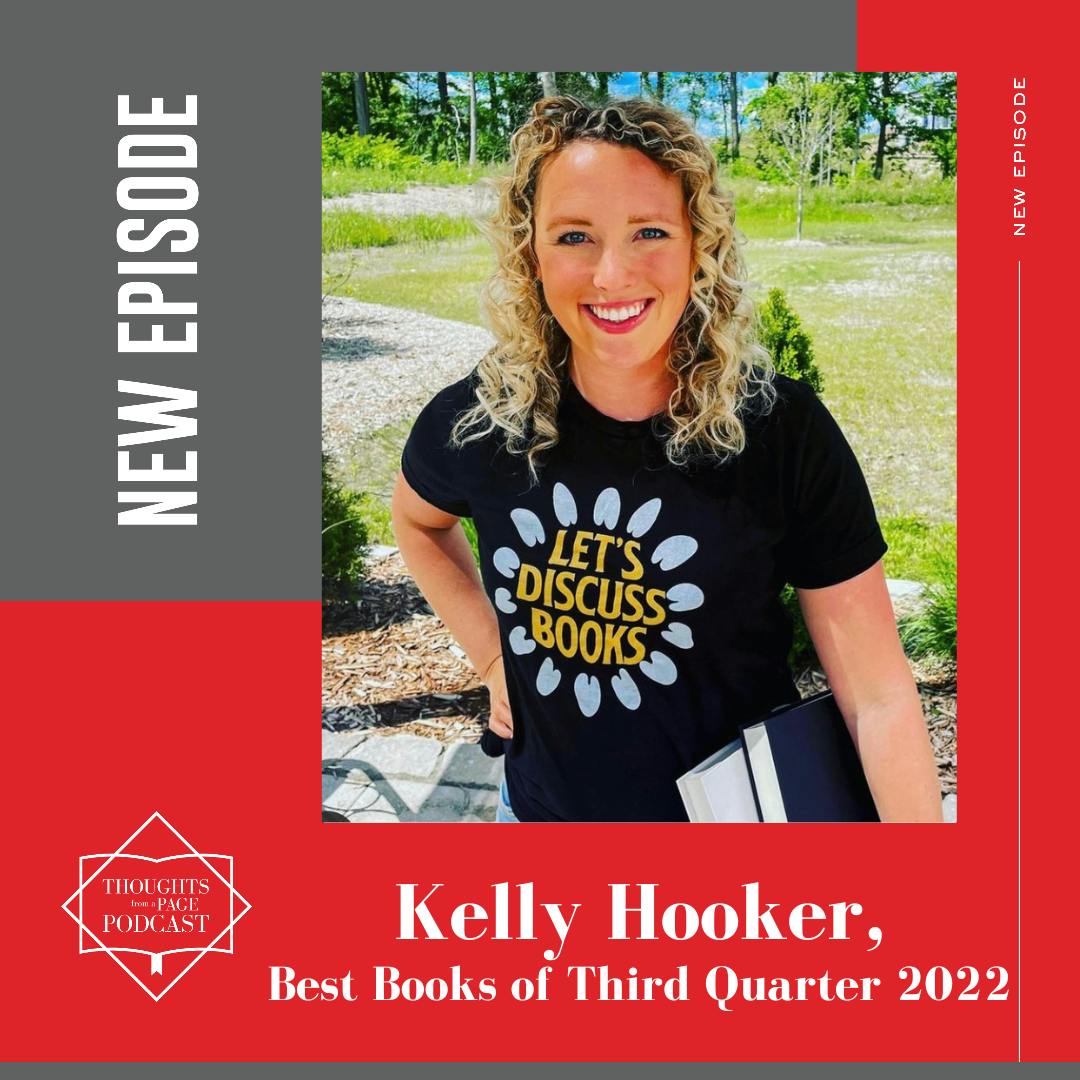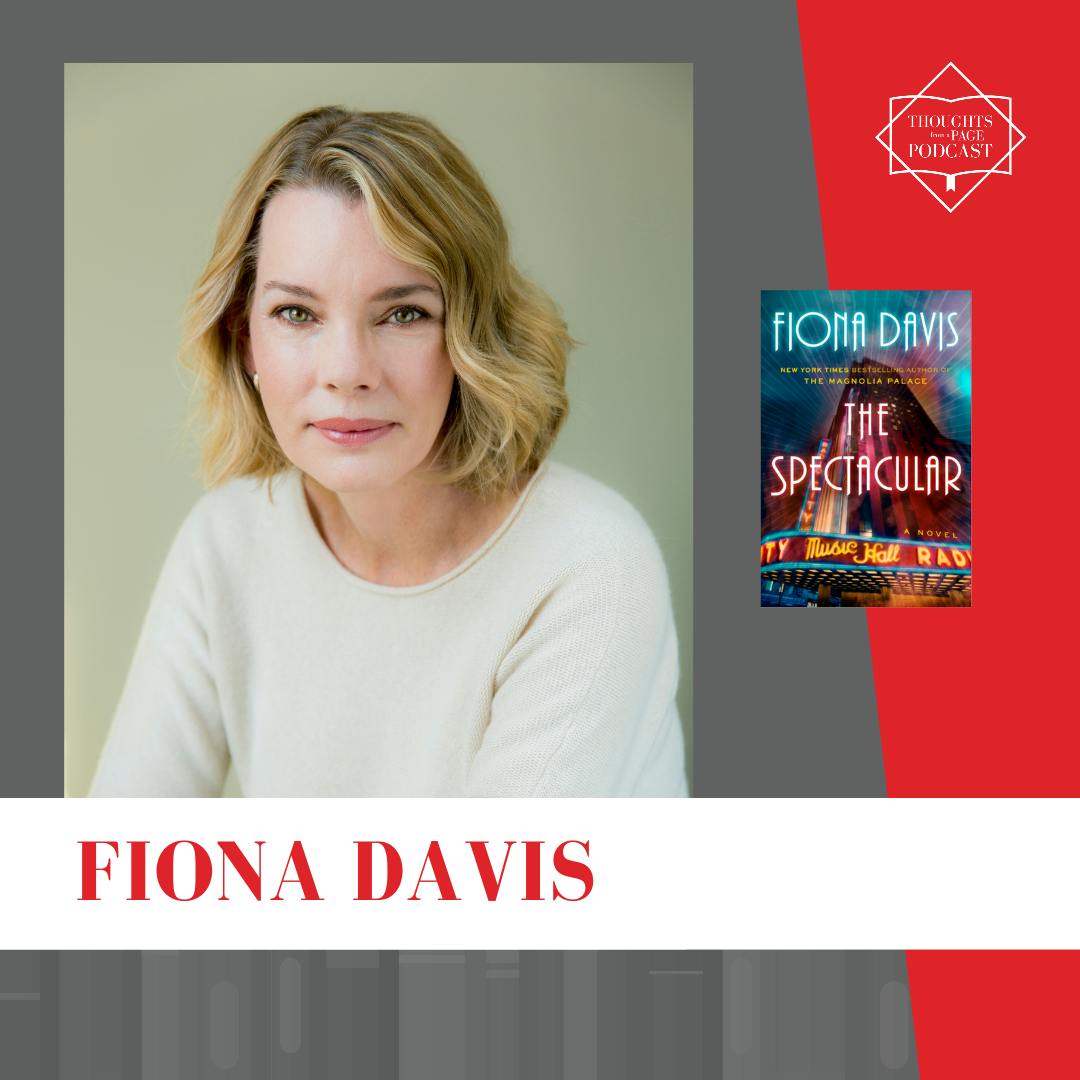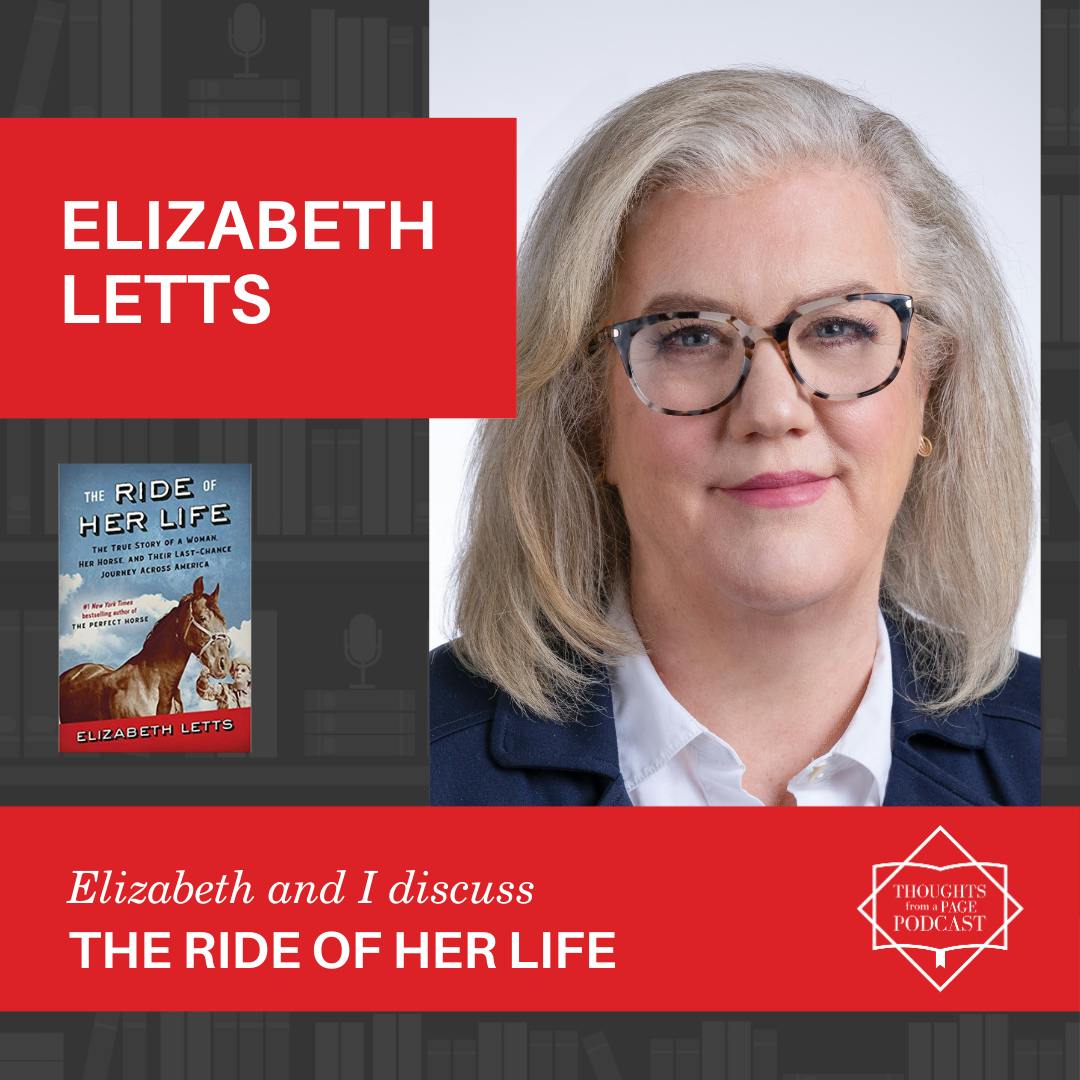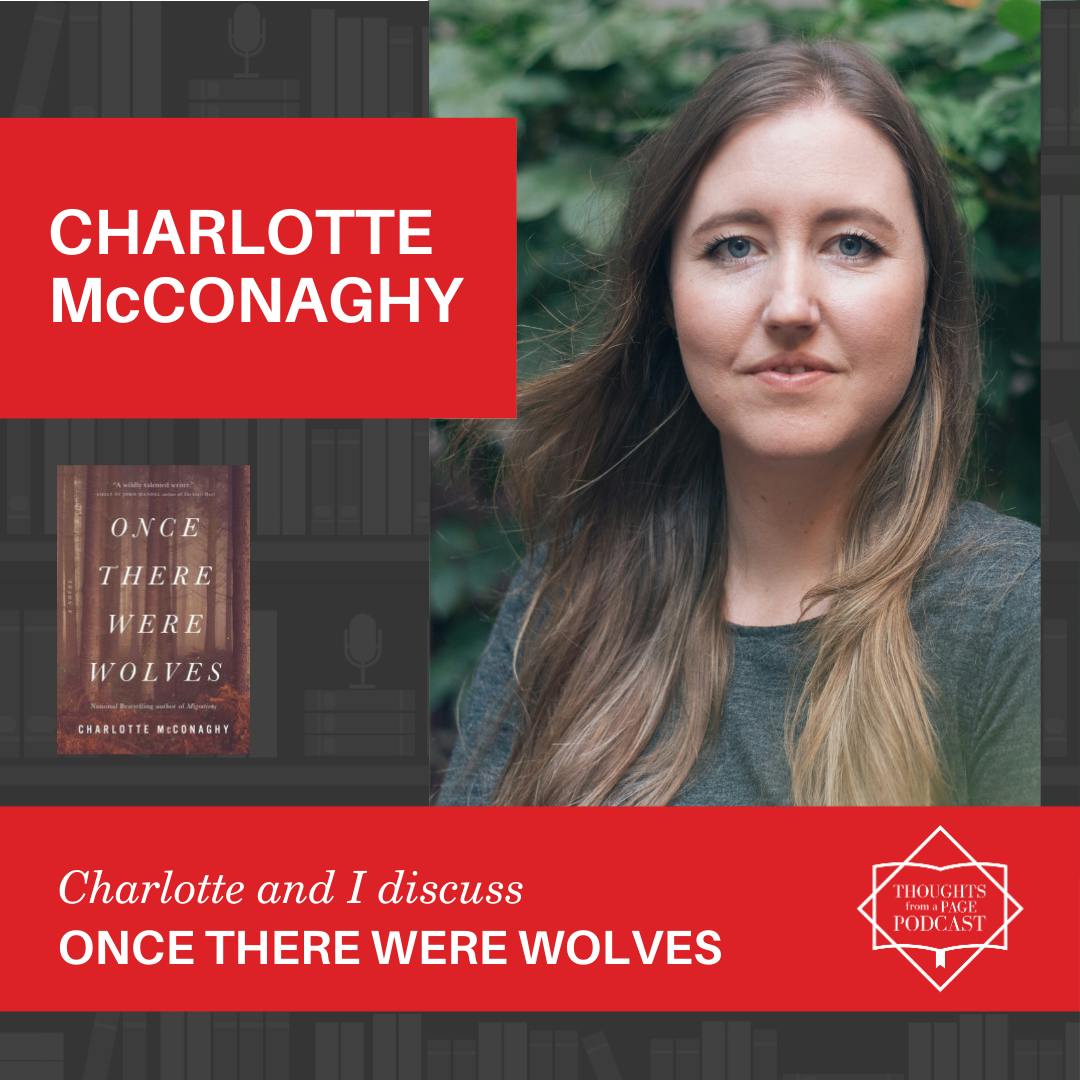Interview with Rory Carroll - THERE WILL BE FIRE

In this interview, Rory and I discuss There Will Be Fire, creating a roadmap regarding the history of the British/Irish conflict, how religion is really a social and political signifier in the conflict, writing true crime, how security changed in the United Kingdom after Brighton, and much more.
In this interview, Rory and I discuss There Will Be Fire, creating a roadmap regarding the history of the British/Irish conflict, how religion is really a social and political signifier in the conflict, writing true crime, how security changed in the United Kingdom after Brighton, and much more.
Rory’s recommended reads are:
- High Dive by Jonathan Lee
- Lessons by Ian McEwan
Support the podcast by becoming a Page Turner on Patreon. Other ways to support the podcast can be found here.
Want to submit a Read-Alike Request for the podcast? Submit it here.
There Will Be Fire can be purchased at my Bookshop storefront.
Connect with me on Instagram, Facebook, and Twitter.
Learn more about your ad choices. Visit megaphone.fm/adchoices
[00:10] Cindy: Welcome to the award-winning Thoughts from a Page podcast, a member of the Evergreen Podcasts Network hosted by me, Cindy Burnett, a voracious reader and book columnist who provides you with casual author conversations and book recommendation episodes, as well as insider information on all of the newest releases that I personally endorse and on the publishing industry in my Behind the Scenes series. With so many books coming out weekly, it can be hard to decide what to read, so I find the best ones and share them with you. For more book recommendations or to find my backlist of interviews, visit my website at thoughtsfromapage.com.
Have you read a book recently that really resonated with you and makes you want to read a book more like it? If so, submit a Read Alike Request to me through my Google Form located in today's Show Notes and tell me why you loved it, and I will suggest some similar reads on a future Tuesday episode.
If you are interested in reading some great books before they publish, I hope you will consider joining my Patreon group to access additional content, including early reads and pre-pub author chats and bonus episodes. I just added Banyan Moon by Thao Thai for May, and The Bones of the Story by Carol Goodman for June. The link to join is in the Show Notes.
Today I am chatting with Rory Carroll about There Will Be Fire. Rory is a veteran journalist who started his career in Northern Ireland as a foreign correspondent for The Guardian. He reported from the Balkans, Afghanistan, Iraq, Africa, Latin America and the United States. He is now based in his native Dublin as The Guardian's Ireland correspondent. I hope you enjoy our conversation. Welcome, Rory. How are you today?
[01:46] Rory: Great, thank you. I'm sitting in Dublin overlooking a gray, overcast typical spring summer day in Dublin, and very happy to talk to you this morning.
[01:56] Cindy: I'm so glad you're here because I absolutely loved your book, and I can't wait to talk about it. I have so many questions.
[02:03] Rory: Great. Well, thank you. I'm very happy to talk about it and delighted, really, that it caught your attention, and I hope US. Readers will follow your lead.
[02:14] Cindy: I think they will. Well, before we dive in, would you just give me a quick synopsis of There Will Be Fire, please?
[02:20] Rory: It's the story of the most audacious plot by the Irish Republican Army in the entirety of the Troubles, the name that we gave to the conflict that raged in Northern Ireland from 1969 and ended with the Good Friday Agreement of 1998. Halfway during that conflict, when the IRA were attempting to end British rule in Northern Ireland, the conflict had reached a stalemate. The IRA, a kind of a guerrilla army or terrorists, if you will, had failed to push the British military into the sea, but the British military had failed to defeat or quell the IRA. So we'd reached this kind of stalemate of sporadic shootings and bombings. And the IRA took this highly secret and highly unusual step to target Margaret Thatcher. And I did two reasons for this. One was to change the strategic calculus of the conflict, because by wiping out not just Margaret Thatcher, but hopefully they intended to take out her government, I mean, a lot of her ministers that that could then shake up the conflict and perhaps pave united Ireland. The second reason they went after her was revenge. Margaret Thatcher in 1981 had allowed, or was in office when ten Irish Republican prisoners starved themselves to death in the Maze prison just outside Belfast. And they blamed her for that. The Irish Republicans. She became in Irish demonology, a figure on a par with Oliver Cromwell, a kind of genocidal British invader from the 17th century. So they had these two compelling reasons to stalk Thatcher and they spent years doing so. They sent scouts out to surveil British Conservative Party conferences and they invested a lot of time and effort in this effort to assassinate her. So the book tells a story of how they did it, how they came so astonishingly close, I mean, so close to killing the most kind of iconic woman of the 20th century in many ways. And then it switches after that to almost a police procedural. It's like True Crime, where we see the British police and a handful of detectives who led the hunt to identify and to catch the bombers.
[04:46] Cindy: Well, I did feel like it was incredibly compelling. One of the things that I really liked in the early stages of the book was that you really build up to why they got to where they did, because for me, that's a little bit of a difficulty, still trying to understand all of the history. And I feel like the troubles are in literary books more right now. I've read a variety of stories, but they always drop you in the middle of it. And then I have to go and Google all these things to try to figure out exactly why they got to where they were. But you started at the beginning and quickly move us through it, but in a very logical, concise explanation as to the early history, which I so appreciated.
[05:24] Rory: Oh, thanks for saying that, because that storytelling wise was a big challenge because I really wanted to certainly to not take the reader's attention for granted and that you really need to earn people's time and keep those pages turning. And at the same time, this is a serious book of nonfiction and so you have to pack in a lot of the history. And the way I tried to do that was the storytelling mimics that of a novel. I mean, it's a handful of characters, core characters, and we see coming with different worldviews from very different parts of Ireland and Britain, and we see how they collide and intersect over the course of several years. And this plot, which of course is climaxes in a detonation before turning to the manhunt. And in by following those characters, you can kind of pack in a lot of the history of Ireland and Britain, which really goes back almost a millennia. And so I didn't want to be giving readers, like having trudged through the Norman invasion of Ireland in Ten, the 11th century. So you have to kind of fettle that in in a way that leaves things clear, so people know what's happening and why things mattered, but without feeling like it's kind of stodgy, like wolfing down two kilos of broccoli.
[06:41] Cindy: Or reading a history textbook.
[06:43] Rory: Or reading history textbook, yeah.
[06:45] Cindy: Well, how did you decide to write about the Brighton bombing?
[06:48] Rory: It cropped up in my day job, which is I'm the Ireland correspondent for The Guardian, so in a day to day basis I'm writing articles or investigating stories for my newspaper. And a few years ago I stumbled across the fact that the Brighton bomber, the man convicted of the bomb, Patrick McGee, was writing a memoir. And my ears pricked up, I thought, well, that sounds like a story. And so I asked him for an interview and I read his memoir. Now, the memoir is fascinating about his childhood, his reasons for joining the IRA, but it draws a veil over the actual Brighton operation. I mean, he doesn't spill any beans at all on that. But in prepping for that interview with McGee, I started reading around the topic, expecting it to be quite familiar because I was a twelve year old boy in Dublin when the bomb happened, and it was a huge shock. It was almost the closest sort of a version of 911 here in Ireland and the UK, because, you know, the fact that the British government is almost wiped out and so it always been in my, my memory and I'd assumed it was a very familiar story. But reading around it, I realized firstly that noodle book had been written on the Brighton bombing, and that there was an amazing story of just personalities, different people, and how they connected, and how the threads of the story could tell a coherent story at the beginning, middle and an end. And that's when I started to think, well, hang on, no article can do justice to this, not even a long magazine style piece. The more research I did, the more I realized it has to be a book. That's the only way to really do justice to the characters, to the story, to the stakes, and the fact that it's yeah. And so that's why I decided then I'd invest the next couple of years of my life telling the story.
[08:43] Cindy: Well, that was going to be my next question, how long it took? Because you must have done an incredible amount of research. I mean, I know you did based on reading the book and seeing the footnotes at the end and your acknowledgments. But that must have taken an incredible amount of time.
[08:57] Rory: Yes, except I'd kind of fast forward it because I took six months of leave from The Guardian to focus on the book. By then I'd already done a lot of the research because the fact I'm in the right place, I'm in Dublin, I travel up to Belfast quite regularly and I was able to visit Brighton. I checked into the Grand Hotel, which was the site of the bombing, which has since been rebuilt. And it's a beautiful, still Victorian style, eight story kind of wedding cake of a hotel, but beautiful rooms. And there one of the police officers, David Tad, who is a crucial role in the story. I invited him down for lunch to do some research. I also found one of the IRA commanders that had sent McGee over to England for bombing missions. And he turned out to be this prematurely aged man in a kind of Dublin slum. And to my surprise, he really wanted to talk, just talk, talk about what happened. He's proud of his role in the IRA campaign and he wants recognition for it. So the research was fascinating and I just really enjoyed diving into different worlds of the police, of the IRA and also Thatcher. I mean, the people around her. I mean, I interviewed some of her top officials. The man who was in her hotel suite with her that 03:00 in the morning when the, when the bomb went off. I mean, he had very vivid recollections of what that was like. So, you know, the timing for this was in some ways perfect because enough time had passed that people were willing to talk about it. Things that would not have said maybe ten or 20 years ago, they now feel secure in actually telling it. And crucially, they're still alive. It's still recent enough that the players are still around. So that's what made the stars align in a reporting sense.
[10:50] Cindy: Well, so many of those conversations must have been absolutely fascinating. And it is kind of wild to think that this guy in the IRA is proud of what he did and is wanting to tell his story and wanting recognition.
[11:03] Rory: Yes, it's so many different takeaways from this. I mean, Patrick McGee himself, in contrast, is a much different character. He's a very thoughtful, quiet spoken guy. This is maybe giving the plot away somewhat, but he was eventually captured and spent years in prison. During that time, he studied, he obtained a PhD and he came out and he wrote kind of an academic book. And he has expressed since then regret for the suffering that he inflicted, but without really expressing remorse or regret for the IRA campaign. So he has a kind of a Hamlet like doubts about what he did, but still defending what he did. So there's a very profoundly gray moral area there to be explored in the book.
[11:55] Cindy: Well, they view it as a war. So I'm sure they don't feel like that parts of it were a mistake because the IRA and those supporters and the people participating felt like that they were on the right side and they were trying to win. So, I mean, I guess to them, yes, they're not going to regret some of those things.
[12:14] Rory: Absolutely. And to this day, there are, I meet Irish Republicans who bitterly regret that they missed her, that Thatcher, so they nearly got her. You can see it at the frustration in the rise, but how close they came and because they know the history of the world we inhabit today would be very different because Thatcher, she wasn't just a dominant figure in the UK and Ireland, she truly was a global figure at that time. She was Ronald Reagan's lieutenant in a free market revolution. In fact, she started before him and she very much influenced the kind of right wing kind of surge in British and eventually then European politics. And also in the Cold War, she played a crucial role in acting as a bridge between Mikhail Gorbachev and the Reagan administration. So, I mean, this was a woman on whom history pivoted and this was the one that the IRA wanted to take out and with her government along with her. And so, yeah, for a lot of the IRA, the only regret about the operation is that she escaped.
[13:27] Cindy: Absolutely. The part that's always really hard for me to understand in this conflict is the religious aspects of it, because living in the US, the Catholic versus Protestant, to me, those religions are so similar. They have the basic same beliefs. The idea that you can only go to a bakery that's Protestant, or a dry cleaners that's Protestant, or that a city would be divided in communities based on those two religions is so foreign to me.
[13:54] Rory: Yes, the religion was more like a political, cultural signifier. So there was nothing really theological about the conflict. It wasn't that, oh, Protestants don't believe Mary was a virgin, and so on. It was more that in the north of Ireland, protestants tend to have a British identity and would rather be ruled under a British under the Union Jack, whereas Catholics tend to have an Irish identity and would rather be ruled under a tricolor. And so religion was more like a shorthand way of tribal identification. Fortunately, nowadays, Ireland, north and south, has become much, much more secular. And so religion, the churches are mostly empty on Sundays, so religion has become itself far less important. But it does to this day remain as real signifier in Northern Ireland between whether you're pro kind of staying within the Union with the United Kingdom, like basically staying British, or if you're Catholic, then the likelihood is you might prefer uniting with the rest of Ireland.
[15:01] Cindy: And I think that's something that you really hammered home well in your book. Because sometimes I think that the conflict between the two religions is what gets brought over here, and people view it that way versus understanding that it really doesn't have to do with religion, as you were just describing, but instead has to do with how everything came about. Which, again, was why it was very helpful that you laid all of that out at the beginning.
[15:21] Rory: Yes, and also there's so many contradictions. I mean, for example, the fact that the IRA, during this plot, they teamed up with Whitey Bulger of old people and the Boston mob. And to show that the IRA were very pragmatic, you could say mercenary in terms of just trying to get money, arms, weapons, help from anyone and any source, including a more and more Gaddafi, the Libyan dictator. And so their main ideology, or religion, if you like, was winning. That's what mattered to them. And setting aside the religious side, one point, once the bomb happened, the story turns into a version of cops and robbers, except in this case, it's cops and terrorists or cops and paramilitaries. And it's almost like a true crime police procedural. And then a lot of the perspective shifts towards the police who were then hunting the bombers and tasked with it, trying to identify them. And then we enter the world of this off 1980s policing, pre digital world. And so all of these threads, so the religious conflict, the fact that the roots of the conflict in Northern Ireland will go back not just a century, go back in millennia, to the 11th century with them. At the same time, we're seeing the aftermath of the Brighton bombing through the eyes of, say, the fingerprint police or the surveillance detectives who are tasked with shadowing IRA members and so forth. So, I mean, the book tries to kind of thread all this in a hopefully kind of fluid, lean way, because I really wanted to not get bogged down mired in too much detail. I mean, just enough for the reader to understand the stakes and the history, but at the same time to want to know what happens next and to care about these characters. For instance, Jack Reese, this provincial detective in Sussex, which is the county surrounding Brighton, who ended up being the lead policeman on this, he was one who to lead the investigation. There was no British equivalent of the FBI. It was actually the equivalent of, say, a cop in Portland, Oregon, detective there who was leading the biggest manhunt for somebody who tried to take out the government. And he was detective was on the eve of retirement when the bomb happened. And he has kind of this is this is one last case. It's like something out of, you know, out of a movie, really. And yet it was, it's true. And so, you know, I would hope that the readers would, you know, they see things through his eyes and why it mattered to him. Likewise, you're seeing things through the eyes of the fugitive of Patrick McGee, who is now on the run, who is actually plotting a new campaign, and he's planning to return to Britain to launch another fresh IRA campaign in England. So the stakes were really high. And what I really wanted was the readers to see things through the eyes of these characters and to empathize and to some extent even sympathize with some of the characters. And one thing I'd be fascinated to see is how people react to different characters. Do they sympathize with McGee, with the bomber at some points or not? I'd be fascinated to see that.
[18:39] Cindy: Well, one of the things I felt as I was reading the entire time was how balanced your portrayal was, that you really did get into each character's head and portray them as they were viewing it. Was that hard to do?
[18:50] Rory: Yes, because it's quite a conceit to try to enter someone else's head. And the only way really to do that is, of course, well read as much about them as you can. Speak to them, if possible, if they're still around, if they're still alive, and speak to their friends and colleagues who knew them best. I have my own moral judgment and prejudices and biases like anybody else. But in this book, I really did try to be fair to everybody so that the reader would understand why people did what they did, even when they're doing committing some atrocities, but that you would still kind of see why they're doing this. There's no real monstrous in this story. There are monstrous things that happened, and yet it's human beings, many of them, in many ways very ordinary, and yet they're caught up in a set of extraordinary circumstances. And I just wanted everybody, the key characters, to come across as rounded human beings, Thatcher included, because it's too easy to see her as just this kind of Olympian aloof, iron lady slash ice maiden. She had to be a flesh and blood woman as well. And, for example, the fact that she after the attack, although she gave a brave performance of Defiance just hours after the bomb, but privately, in fact, she was very much affected. And the fact that she then took to having a little torch in her handbag because she was afraid of the lights ever going out again or wanting for doors to stay open, this was, of course, a function of her having almost been entombed in a hotel that collapsed around her. So I really wanted the reader, whether you hate Thatcher, love Thatcher, I don't really have much opinions about her. But you see her as a woman, as a mother, as well as an iconic figure, and you see how the bomb affected her well, and how close.
[20:52] Cindy: She came to being hit by the debris from the bomb. I mean, you talk about it in your book if things had been any different, and her timing had been off by just a little bit. She could have died.
[21:02] Rory: Yes. At about 02:45 a.m., of course, as a workaholic, she was still working through the night with her officials. And then around 02:45 a.m., she went and used the bathroom. And then she's a few minutes later, she's sitting in an armchair going to other documents with an official when the bomb detonated and the hotel shudders and shakes and this huge Victorian chimney stack crumples and starts smashing through. That's five tons of Victorian masonry starts smashing through the hotel like a homicidal elevator shaft, just wiping out one room after another, kind of thundering down towards the basement. Now, it took out a lot of her bathroom just where she had been just two minutes before, hence the subtitle in the book. So she might have died had she still been in the bathroom and even sitting in the armchair. She might have died because concrete and wood and timber and human beings also caught up in the vortex that was thundering down, could have crashed directly through the ceiling on top of her. Except it didn't. It swerved for reasons of geometry. You could call it fate, this avalanche swerved, and it took a slightly different path, and instead it took out all these other adjacent rooms, and so it missed her. And so that's on history really did pivot on a thread.
[22:30] Cindy: It's just incredibly crazy to think about.
[22:33] Rory: Yes. Ronald Reagan, by the way, just two years prior to this, he was just centimeters away from death when it would be assassin's bullet. The same thing. In a sense, the US came so close to having the same experience.
[22:47] Cindy: I agree. The interesting part, and you touched on this a little bit regarding the true crime aspects was that it was in a non-digital age. I don't want to ruin any of the details of that because I felt it was really interesting, and I enjoyed working my way through that. So I don't want to talk about some of the things that happened in terms of the investigation, because I want people to be able to experience that themselves. But as you were researching all of that and thinking about how it all unfolded and the different breaks that they sometimes had when they were doing their investigation, were you going back and forth the whole time of what this would have been like if it was in the digital age?
[23:23] Rory: Well, I had to keep on remembering how things are now because, of course, turn on the TV and you see all these things about DNA and digital footprints and fingerprints. It's difficult to think back that not that long ago it was so different. The techniques that the British police were using were in some ways not that different from techniques from a century earlier. Fingerprinting was the most advanced technology that they had, and that was already a century old in the 1980s. And basically, they didn't hardly had a certain type of computer, but it kept breaking down and they had mountains of paperwork to go through. I mean, they had like 50 firstly, they had to try to track down more than 1000 guests that had stayed in the hotel in the run up to the attack, and these thousand guests had been scattered across 50 countries. So Interpol was brought in. All of this done over the phone and or with faxes. Every time they brought in a computer, it would break down because they couldn't handle the amount of data being put into it. In that sense. It reminded me of the day of the Jackal, where the French police are really having to process so much kind of paper, and it's almost like instead of a manhunt, they look like librarians. They're just having to funnel their way through papers and papers and documents. And so much of policing, really, is that at least it was then, and yet that's. But there's tension in that because they might miss the crucial bit of paper and everything can turn on that. So it's that police procedural aspect I found absolutely fascinating. And I was lucky that enough of the police from that time were still around and were able to talk me through it because I had all these dumb questions about, well, how do you do this, how did that work? And they would be quite patient and explain to me how it was. So it was a privilege to be able to kind of step back into that world.
[25:22] Cindy: I just kept thinking about when I check into a hotel today and you give your name and you show your license and that's about it. But when Patrick McGee checked in, he had to fill out the guest paper and he had to worry about whether his fingerprints would be on that piece of paper. He obviously gave a different name, but I thought all of that it was so easy to give a different name. It's really harder to do that today.
[25:43] Rory: Yes, because even credit cards, I mean, they were in use at that time, but most people didn't use them and he, of course, did not use one. So when he checked in, yeah, he used a false name. And in fact, one of the most bizarre twists in this, his chosen pseudonym was that of another IRA bomber who was at that time in prison. And it seems like his chosen pseudonym was a sort of a clandestine salute or homage to this other IRA bomber, and in a sense, to taunt the British police. But he so much depended. Hinged so much of the story hinges in that one moment when he's checking into the hotel. Now, this is three weeks before the Conservative Party conference. He's posing as an Englishman putting on an English accent, well dressed in this kind of shiny hotel foyer. And they hand him the slip of paper and he takes a pen and he has to write down his fictions, false name, so on, and try to do this all without touching the piece of paper and without the receptionist thinking there's anything odd going on. And again, without spoiling the plot. That is a crucial moment on which really on so much hinges. And I found that part and following that thread absolutely fascinating.
[27:01] Cindy: I found following it as you had written it, absolutely fascinating as well. It just makes you think about today versus then and all of it. I mean, our digital footprint everywhere we go. I would assume it would be much more difficult to do something like that today. Plus, I'm sure, I think you touch on this, that the security is stepped up so much more for these officials today than it was then.
[27:21] Rory: Yes, and that's one of the ways in which the Brighton bombing certainly changed Britain and Ireland and other countries, and that security protocols were stepped up because there was a kind of a before Brighton and after Brighton for the UK. It was, in a sense, a kind of a 9/11 moment for them in terms of how security was viewed. And there was an end of innocence, really. But also there's a parallel with, in a sense of what didn't happen. There was no 9/11 style, George Bush led backlash, no huge kind of crackdown on the IRA. Margaret Thatcher, despite being a very polarizing and strong personality, she did not overreact to her, to her immense credit, there was a very restrained British response. Instead of unleashing the security hounds to go hunting down shooting, killing IRA suspects wherever they could find them, no, there was a very sense of like, we're going to do this, let the police do their job, and they held back. Now, we think from our time in our era now, when we saw what happened after 9/11, if you can imagine even just something like this happening today, a prime minister of any country almost being almost the entire government being wiped out, I mean, the response would be so different because our expectations are and our world is so different now. And so it was really quite instructive to look back and see how things were not that long ago.
[28:55] Cindy: I think that's a very valid point. But as I was reading what you had written about that, I was also wondering, the history between Great Britain and Ireland is so different than the history between the US and Osama bin Laden and the conflicts, they're not historically as long and as big. And I wondered if some of that played in as well.
[29:15] Rory: Yes, because Ireland and England have had a tortured relationship for almost a millennia and Thatcher always struggled to understand Ireland. She was quite diligent. I mean, she read lots of books, she listened to people, and yet she could never really quite get her head around why the Irish were so kind. Of stubborn and why the Irish had such resentment against the English. And that, in a sense, was why she took a I mean, one of the multiple ironies here is that just a year after the Brighton bombing attack, she signed a landmark treaty with the Irish government. This was the Anglo Irish Agreement in 1985, which paved, it turned out, the Good Friday Agreement of 1998, which brought peace to Northern Ireland, a peace that we enjoy to this day. And, I mean, that in itself is ironic because then that Good Friday Agreement as one of the conditions of that, where all paramilitary terrorist prisoners were to be released from prison, including Patrick McGee, the man who came so close to killing her, so she inadvertently paved the release of her would be assassin. And Irish British history is so tangled and so filled with the law of unintended consequence that it's strange. I could go on. There are additional ironies. I mean, maybe one final one is that Margaret Thatcher, she fueled this strain in the British Conservative Party of hostility towards the European project, European integration, which culminated in the vote to leave the European Union in 2016, long after Thatcher died ten years ago. And that in itself has destabilized Northern Ireland and could actually accelerate a united Ireland. So it could turn out that Margaret Thatcher has done more for the cause of united Ireland than the IRA ever did. For me, getting my head around that is head spinning.
[31:14] Cindy: Well. And it's truly ironic, but I guess I just viewed, because there was this incredibly long, very personal conflict, that if she had had this huge backlash like we did after 9/11, in terms of hunting down all these IRA people and executing them, that it might have been more difficult in terms of the relations between the two countries and just caused more problems instead of trying to work to resolve it.
[31:40] Rory: Absolutely it would have, because British overreaction has been the story of Irish nationalism is one of some failed, you know, attempt of violence followed by a British overreaction, which then is grist to the mill of Irish nationalism. I mean, our founding rebellion of 1916 was that Thatcher did not fall into that trap. She, I think, knew enough by then that, you know, such a crackdown would have been counterproductive. And also it wasn't in her nature. She had won a war, the Falklands Malvinas conflict. She'd won two elections, and she'd made a reputation as the Iron Lady. But she was also a lawyer by training and surprisingly kind of cautious in a lot of her actions. And I think she felt that you had to do things by the book. I mean, she was very old fashioned in that sense. She would believe in announcing new policies, maybe to Parliament first, as opposed to kind of leaking them to favored newspapers. Things now, which you look in our era, seems remarkably quaint, and yet to her. They were important because she believed in the rules. Now, of course, these were rules made by Britain and made by people like her, but she did believe in following the rules.
[32:55] Cindy: She was definitely very by the book.
[32:57] Rory: Yes.
[32:58] Cindy: I always love to talk about covers, and I think your cover is stunning. The second I saw it, I just loved it. Did you have a say in it at all?
[33:07] Rory: Yes, I love it, too. Actually, I'm relieved to say the publishers were kind enough. They sent a few iterations which we kind of debated. And then this one, I think, was maybe the fourth, the third or fourth one. And we loved it. I loved it. There was another variation of it that instead of using the orange and green of the tricolor, there was one where it was red, kind of like blood red. And it's very vivid and very striking. And I quite like that one, too. But after some hemming and hawing, I think we all decided that this one with the tricolor is the way to go. And, yes, I must say I really like it, too. That picture of Thatcher at the top, it's quite enigmatic. You can read into it with what you will in terms of is she a heroine or is she a villain? It's left for the reader to decide.
[33:57] Cindy: And to see the building after the bombing on the bottom. But I think the tricolor is partly.
[34:01] Rory: What really makes the COVID Yes, the COVID in a sense, a very clever tells the story. And the title, if you like, I can explain the title stems from the original sin, from the IRA's point of view of Margaret Thatcher. The initiating element to this whole story was her decision to let ten Irish Republican prisoners starve themselves to death. Now, when the first of those prisoners, Bobby Sands, was on his deathbed, there was an appeal. Irish Republicans were begging Thatcher to relent, to give the prisoners some concessions that would allow the hunger strike to be called off. But she didn't. But so there was an IRA newspaper called An Phoblacht, and that ran a banner headline saying, There Will Be Fire…. if Bobby Sands dies. Now, Bobby Sands did die, and nine other prisoners followed him to the grave. And so that was really the title is drawn from that headline and that IRA newspaper. So the cover of the book really does nail it. I think. So. I'm very chuffed with what the publisher did.
[35:11] Cindy: You should be. I agree with you completely. Well, before we wrap up, I would love to hear what you've read recently that you recommend.
[35:19] Rory: Let me think. Actually, there's a novel called High Dive by Jonathan Lee, which is a novel about the Brighton Bombing. It's published several years ago, but I recently reread it and it's wonderful. It's a fictionalized version of the bomb. It's him, a reimagined version of it. But I really enjoyed. Enjoy that. And this one. Ian McEwan's Lessons. I'm slightly late to it, but it's phenomenal. I mean, he is always been one of my favorite authors, but for me this is just a master class in storytelling and fiction. So, yes, Ian McEwan's Lessons is my recommendation for the day.
[36:01] Cindy: Okay, great. And I'm going to go back and pick up high dive because I have been enjoying fiction that is set in Ireland, particularly during the Troubles, but even sometimes earlier was still the Britain Irish conflict. So I'm going to add that one to my list.
[36:14] Rory: Great.
[36:14] Cindy: Well, Rory. Thank you. This was a fascinating conversation and I so appreciate your taking the time to come on the Thoughts From a Page podcast now.
[36:22] Rory: It's been a complete pleasure. Thank you, Cindy. I really enjoy this.
[36:26] Cindy: Thank you so much for listening to my podcast. If you like this episode, and I hope you did, please follow me on Instagram at @thoughtsfromapage, consider joining my Patreon group to access bonus content and support the podcast, tell all of your friends about the show, and rate it or subscribe to it wherever you listen to your podcasts, I would really appreciate it. The book discussed in this episode can be purchased at my Bookshop.org storefront, and the link is in the show notes. I hope you'll tune in next time.
New to Thoughts from a Page Podcast?
Here are some great episodes to start with.























